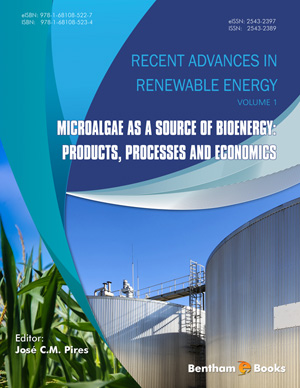Abstract
SHS investigation development is considered from the geographical and historical viewpoint. 3 stages are described. Within Stage 1 the work was carried out in the Department of the Institute of Chemical Physics in Chernogolovka where the scientific discovery had been made. At Stage 2 the interest to SHS arose in different cities and towns of the former USSR. Within Stage 3 SHS entered the international scene. Now SHS processes and products are being studied in more than 50 countries.
Abstract
The lipids accumulated inside microalgal biomass can be trans-esterified into biodiesel and have brought this type of feedstock to the forefront of the second generation renewable fuels research. Nevertheless, even though energy prices are generally increasing, fuel and energy products are of high volume with low value commodities and the production of microalgae-derived biofuels is not currently economically feasible when compared to fossil fuel energy. Thus, to achieve true sustainability in transferring microalgae into fuels, there is a need for integrated solutions which utilise low-value inputs to the process and exploit the full product portfolio achievable from microalgae. For example, microalgae have been shown to contain quantities of a vast array of biological materials such as exopolysaccharides, phycobiliproteins, potent antioxidants, polyunsaturated fatty acids, and mycosporinelike amino acids that have a range of high-value commercial applications in the cosmetic, pharmaceutical and nutraceutical industries. As a result, several research groups have introduced the microalgae bio-refinery approach to encapsulate this concept and maximise the full potential of an integrated microalgal production facility that harvests the high value components available and produces fuels as a secondary revenue stream.
Keywords:
Algae, Biorefinery, Astaxanthin, Biofuels, Membrane technology, Sustainability, Mass efficiency, Fractionation, Optimization, Artificial lighting.
Recommended Chapters
We recommend

Authors:Bentham Science Books






